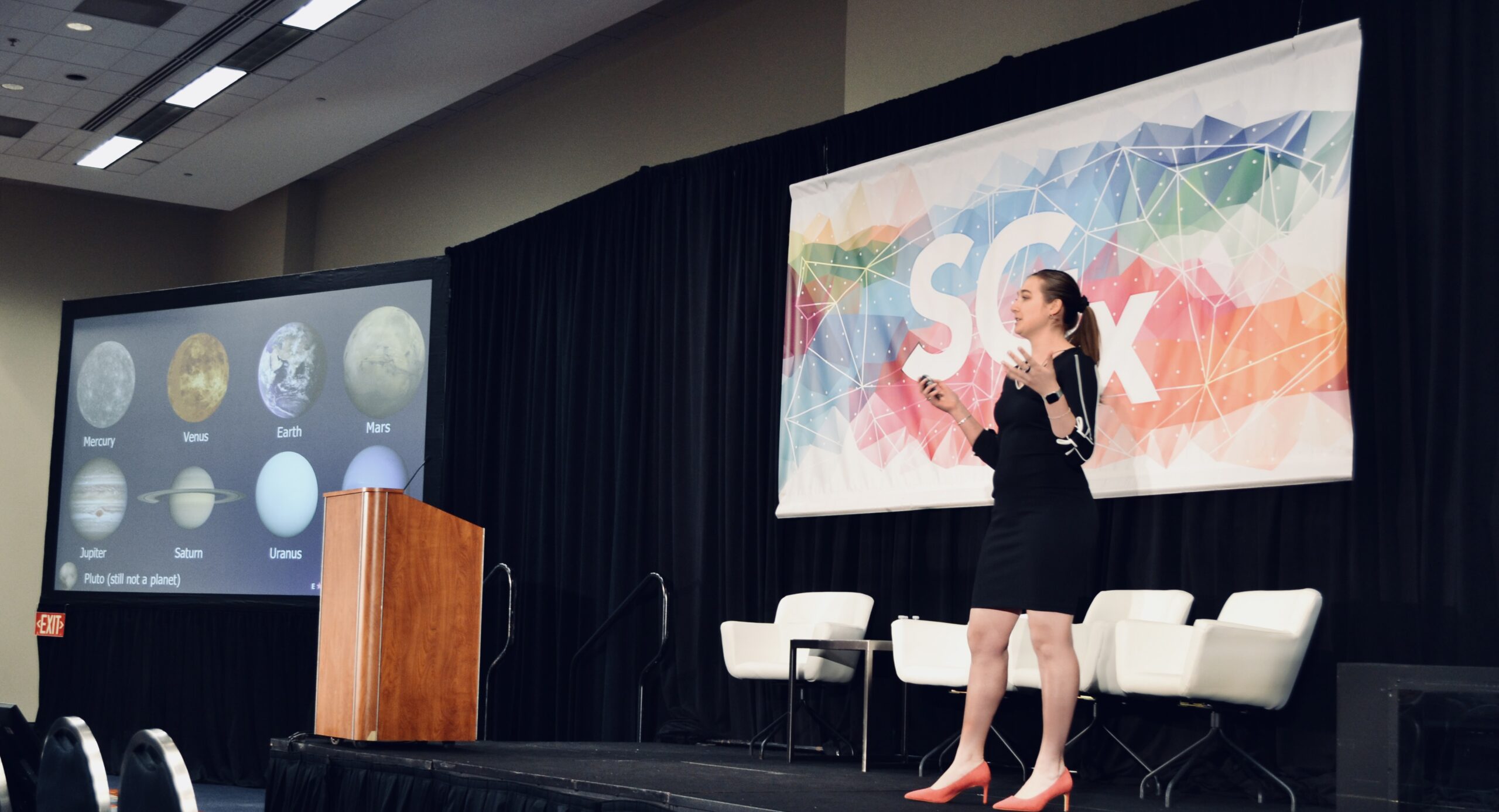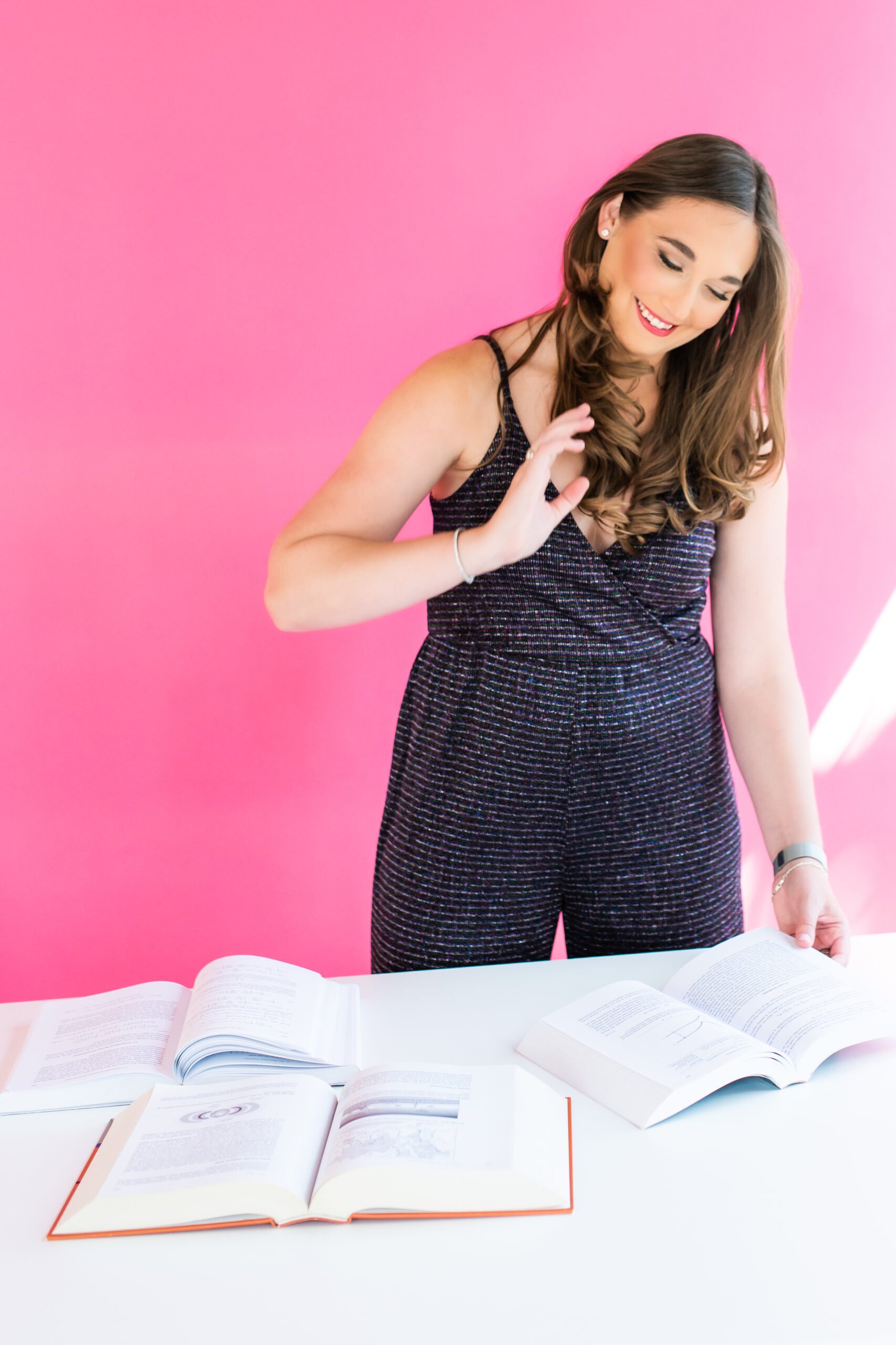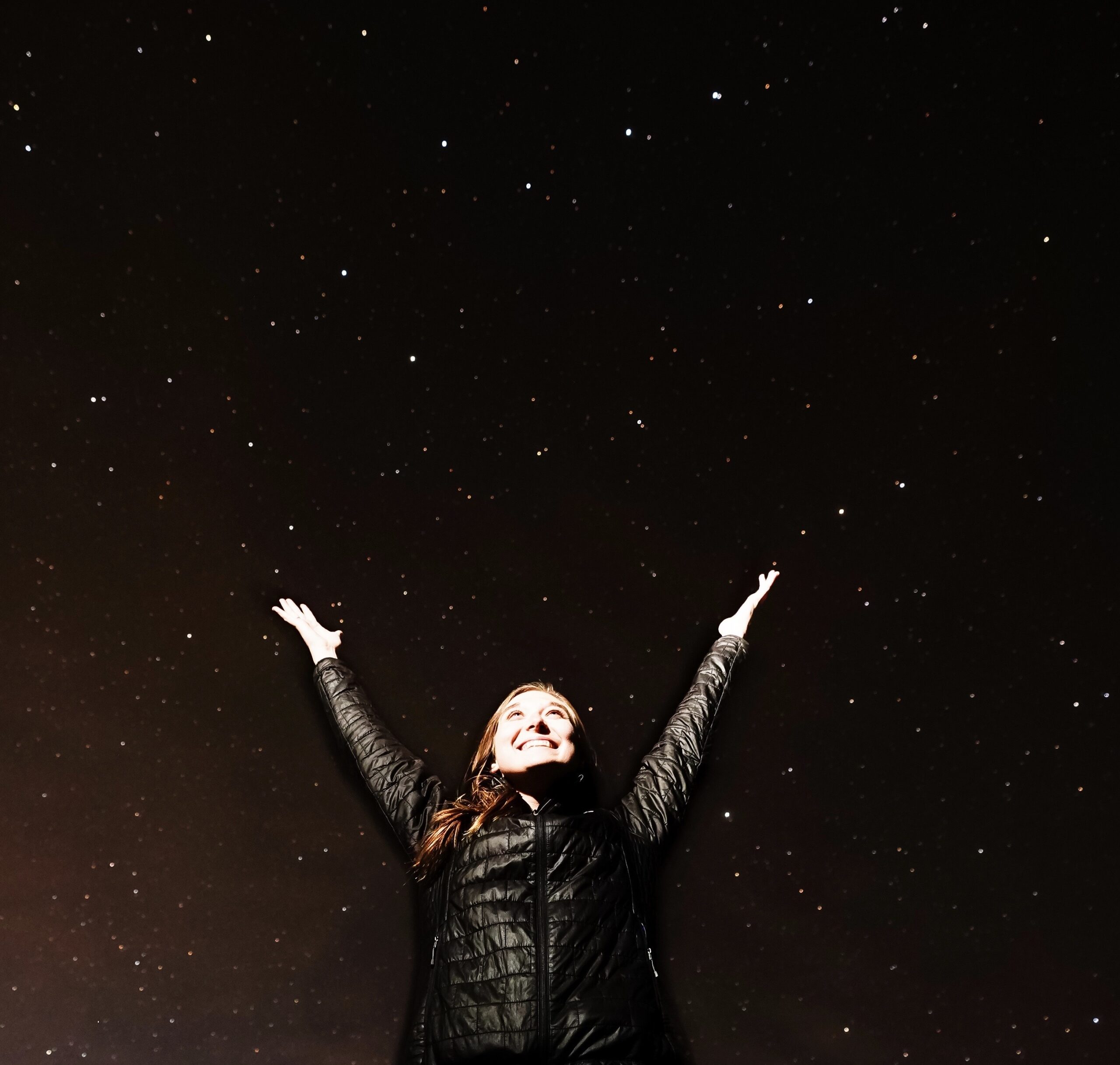
STEM | Emma Louden | Astrophysicist, Strategist
Emma Louden is an astrophysicist, strategist, and speaker. She is a Ph.D. candidate in astrophysics at Yale University. She is passionate about future-focused strategy for astrophysics, engaging the public with space exploration, & philanthropic work focused on applying evidence-based solutions to solve the world’s most pressing problems. When not working on her Ph.D., she focuses on my STEM workforce project, Space to Sparkle, her podcast, & supporting the next generation of astronomers through the Summer Science Program.
Do you have a specific position or career path that you’re working towards?
Yes, I’m trying to create my own career path that exists at the intersection of astrophysics and the space industry. I was a Brooke Owens fellow in 2018, which is a program for gender minorities in aerospace. Through that experience, I discovered the growing industry and startup companies in space. I realized there is a missed opportunity for passionate space enthusiasts who have PhDs in astrophysics to transition and work in the space industry. I’m interested in exploring career paths that bridge the gap between the two fields. Additionally, I’m interested in planning for the future of astrophysics considering the challenges posed by satellite constellations and how technologies developed for on-orbit servicing and manufacturing can enhance our exploration of the cosmos.
What are some trends or observations you’ve noticed in the field?
Currently, I’ve noticed a lot of reactive responses to the changes happening in the sky. There are concerns about satellite constellations obstructing telescopes, but I believe there’s also a lot of good happening. Satellites are bringing internet access to areas that previously lacked connectivity, enabling education and opportunities for many. I think it’s crucial to be proactive and find ways to mitigate any negative effects while also embracing the positive aspects. We can plan for the future by considering alternative telescope locations, redesigning telescopes, and developing predictive tools to anticipate satellite crossings. Being proactive and finding solutions allows us to both explore the universe and make life better on Earth.

Who are some women mentors or role models that have inspired you in the aerospace field?
I’ve been fortunate to have many inspiring women throughout my journey. My first physics teacher, Jamie Dewis, was the person who made me realize I could pursue a career combining my love for stars and physics. Cassie Kloberdanz Lee and Lori Garver, founders of the Brooke Owens Fellowship, are two of my heroes. Lori Garver, in particular, advocated for NASA to consider commercial space, and now we’re seeing that transition happening. I draw inspiration from her proactive approach in shaping the future. These are just a few of the many incredible women who have influenced and motivated me.
Did you ever consider becoming an astronaut, or do you prefer your current path?
I’ve thought about both possibilities. While I don’t see myself going to Mars, I do want to go to space in my lifetime. It’s on my bucket list to experience low Earth orbit, whether on the International Space Station or future commercial space stations. The Moon is also a destination I would consider. While becoming an astronaut wasn’t my primary goal, space exploration and the opportunity to contribute to it in other ways drive my passion.
Where do you see yourself in the next five to ten years?
Currently, I’m in my third year of my PhD program, so in the next five to ten years, I see myself completing my doctorate and continuing to contribute to the field of astrophysics. I hope to establish myself as a respected researcher and advocate for sustainable and inclusive space exploration. I aim to collaborate with space industry companies and organizations to develop innovative solutions for the challenges we face in exploring the cosmos while considering the impact on Earth.
Additionally, I aspire to create opportunities for other astrophysicists and scientists to transition into the space industry, bridging the gap between academia and commercial space. By doing so, I hope to foster a diverse and interdisciplinary community that can address the complex issues and advance our understanding of the universe.
On a personal level, I also hope to have the opportunity to experience space travel myself, whether through commercial space tourism or other avenues that become available in the future. Experiencing space firsthand would undoubtedly deepen my perspective and passion for space exploration, further fueling my drive to contribute to the field.
Ultimately, my goal is to contribute to a future where humanity’s exploration of space is not only scientifically and technologically advanced but also ethically and sustainably grounded, with a strong emphasis on improving life for all people on Earth. I believe that by combining my astrophysics expertise with the entrepreneurial spirit and innovation in the space industry, we can create a future that benefits both our understanding of the cosmos and our planet’s well-being.
In addition to my research and contributions to the field of astrophysics, I have a strong interest in science communication and education. Over the next five to ten years, I envision myself actively engaging in outreach activities to inspire and educate the next generation of scientists, astronomers, and space enthusiasts.
I would love to participate in public lectures, workshops, and events that bring the wonders of the universe closer to people of all ages and backgrounds. By sharing my knowledge and passion for astrophysics, I hope to ignite curiosity and foster a greater appreciation for science and exploration. Through these efforts, I aim to make science accessible and relatable, breaking down complex concepts into understandable and engaging narratives.
Additionally, I plan to leverage digital platforms to reach a wider audience and create educational content. This could include creating online courses, hosting podcasts, or producing videos that explore various aspects of astronomy, space exploration, and the latest discoveries. By utilizing technology, I can connect with people around the world and inspire a sense of wonder about the cosmos.

As my career progresses, I also intend to collaborate with organizations and institutions that focus on promoting diversity and inclusion in the STEM fields. I believe in creating an equitable and inclusive scientific community where individuals from all backgrounds have equal opportunities to pursue their passions and contribute their unique perspectives. By actively supporting and advocating for underrepresented groups in science, we can create a more diverse and robust scientific workforce.
Overall, my vision for the future encompasses a multifaceted approach to advancing our understanding of the universe and promoting the benefits of space exploration. Whether it’s through groundbreaking research, science communication, education, or advocacy for diversity and inclusion, I aim to leave a lasting impact on both the scientific community and society as a whole. By pushing the boundaries of knowledge and inspiring others to do the same, we can collectively shape a future where space exploration becomes a unifying and transformative endeavor for humanity.
Get your hands on the latest tips and tricks of what it means to be a #GOSS. In this free e-book you will dive into 11 business traits that will help you grow your business!
11 Ways To #BeGossy E-book
FREE DOWNLOAD
Find out more inspiring stories from women worldwide of all industries. Follow us on Instagram @GossMagazine.
website design Credit
© Goss Club Inc. 2024 | all rights reserved |
Inspiring & empowering women worldwide.
© GOSS CLUB INC. 2024 | all rights reserved
Share to: